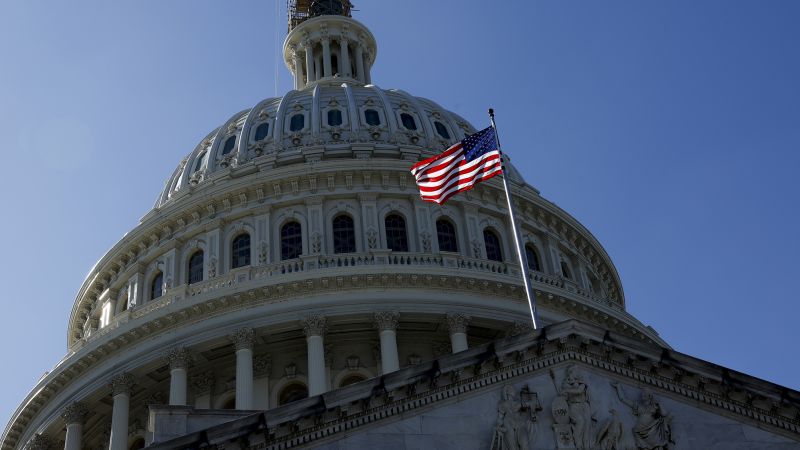The United States is one step closer to losing its last perfect credit rating after Moody’s Investors Service changed the outlook of the nation’s debt to negative on Friday after markets closed.
While the move does not automatically mean it will downgrade America’s creditworthiness, it increases the chances.
Even the prospect of a US downgrade could hurt Americans’ investment portfolios, make it even more expensive for them to borrow money, and make it more costly for the government to pay off its debts.
These effects would likely be even more painful if Moody’s does eventually downgrade the US debt.
The nation’s diminished fiscal strength, undone by extreme partisanship in Washington, was a key driver of the action, according to a statement from Moody’s.
”In the context of higher interest rates, without effective fiscal policy measures to reduce government spending or increase revenues, Moody’s expects that the US’ fiscal deficits will remain very large, significantly weakening debt affordability,” the statement said.
US government officials pushed back on the move, citing the liquidity of US Treasuries, among other factors.
“We disagree with the shift to a negative outlook,” Deputy Secretary of the Treasury Wally Adeyemo said in a statement. “The American economy remains strong, and Treasury securities are the world’s preeminent safe and liquid asset.”
Moody’s is the only one of the three major credit rating agencies to assign the United States an outstanding rating of AAA, which it has maintained since 1917.
Standard and Poor’s downgraded the United States for the first time in 2011, following the debt ceiling standoff then. In August, Fitch Ratings knocked America’s credit rating down after the most recent debt ceiling debate.
Moody’s cited multiple recent events that exemplify America’s extraordinary political divide, including the near-default earlier this year before Congress agreed to a debt limit increase.
The resulting ouster of House Speaker Kevin McCarthy, the first time in history a speaker was given the boot, and Congress’ inability to cement a replacement for weeks were also included in Moody’s negative sentiment about the government’s vulnerabilities. That’s especially crucial when it comes to the ability to exercise fiscal responsibility, avoid another looming shutdown and work in a bipartisan manner to work on a reasonable budget.
If Congress doesn’t pass a budget or stopgap-funding bill by midnight next Friday, November 17, the government will shut down. Federal agencies have already started to prepare as House Speaker Mike Johnson has yet to outline a path forward for avoiding that result.
A spokesperson for Johnson did not immediately respond to CNN’s request for comment on Moody’s announcement.
“In Moody’s view, such political polarization is likely to continue,” the agency said. “As a result, building political consensus around a comprehensive, credible multi-year plan to arrest and reverse widening fiscal deficits through measures that would increase government revenue or reform entitlement spending appears extremely difficult.”
White House Press Secretary Karine Jean-Pierre said Moody’s action is “yet another consequence of Congressional Republican extremism and dysfunction.”
US debt has long been considered by investors as the safest of safe havens, but Fitch’s recent cut, along with Moody’s warning, suggests it has lost some of its luster.
A downgrade would likely cause US Treasury yields to rise as investors see more risk in lending money to the government.
US Treasuries – and particulary the 10-year US Treasury – influence all kinds of debt, from the mortgage rate for the houses Americans buy to contracts written around the world.
Immediately following the announcement, US Treasury yields moved slightly higher ahead of the bond market’s 5 pm ET close heading into the weekend.
The next step for Moody’s will be to undergo a more thorough review of US debt to determine if a downgrade is warranted. Reviews are typically finished within 30 to 90 days in cases where the review “is not dependent on an event whose timing Moody’s cannot control,” a methodology brief published before Friday by the rating committee states.
This story is developing and will be updated.
Read the full article here







